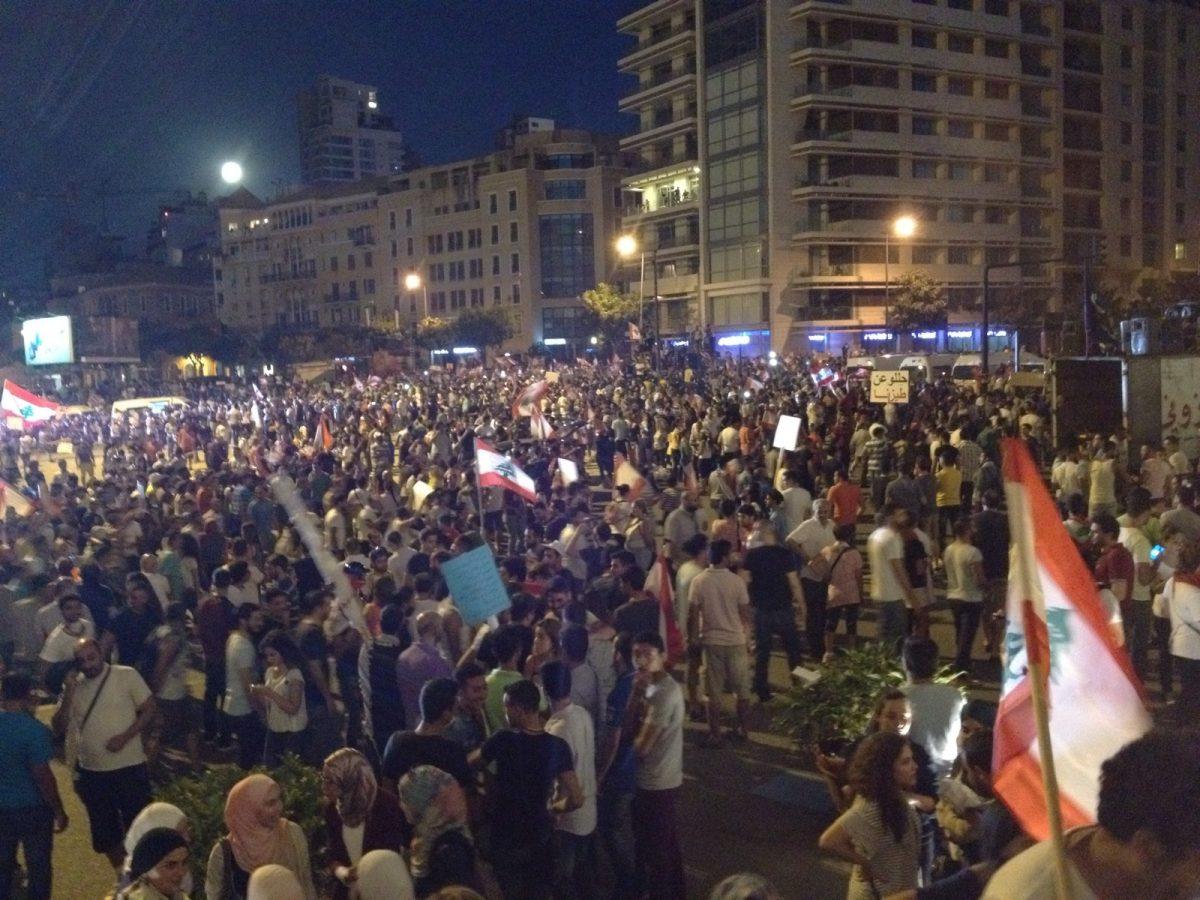Recent protests against government’s failure to collect waste highlight shift in thinking of country’s youth, cynicism of older generations
Recent protests in Lebanon over trash buildup have highlighted the need for a shift in culture among the people.
Trash started piling up in the streets of Beirut and Mount Lebanon after the government closed the areas’ landfill on July 17. The landfill was expected to shut down last year, but the government kept it open in order to search for sustainable alternatives.
Not surprisingly, no solution was found.
Since then, mountains of trash have swamped parked cars in Beirut. Vehicles and pedestrians have to maneuver around the garbage piles, while smaller streets are totally blocked off due to the mounds of waste.
Food rotting in the sweltering summer heat has created pungent smells, causing people to rush by holding their breath. On top of all this, residents desperate to get rid of the mountains of trash have taken to burning the piles, leading to large fires that have to be put out.
After weeks of frustration with the situation, Lebanese citizens began to peacefully protest in early August. The demonstrators quickly grew from a couple hundred people in the first few days to over 20,000 protestors meeting in Martyrs’ Square in Beirut on Aug. 22.
Unfortunately, protestors and the police clashed later that evening, leading to one protestor death and several hundred injuries on both sides.
Protestors responded by gathering with a force of 20,000 in Martyrs’ Square again for a peaceful demonstration on Aug. 29. It is just one of the steps that needed to be taken to bring change in Lebanon.
The protest proved that, despite what our elders might tell us, the youth of Lebanon do care about what happens to their nation.
“I think what hurts the most is that the younger generation sees no future in Lebanon,” former Lebanese Economy and Trade Minister Nasser Saidi said during an interview on CNN. “I have three of my own children and they tell me they don’t want to come back.”
When Saidi said this, I was genuinely disheartened. This type of hopelessness has spread through Lebanon after years of injustice. Fortunately, the movement to clear the trash has turned into a national protest against government corruption and ineptitude that might finally bring a permanent change.
“We typically don’t get mass movements for something as simple as trash pickup,” Associate Professor of Political Science Idean Salehyan said. “We get people fed up over other reasons. Lebanon has had a history of corrupt politicians, outside influence and militant factions. (This discontent) is probably much more what is driving these protests. And the trash just becomes the most obvious thing to look at.”
The “You Stink” movement — an online campaign started by a group of Lebanese youth who are leading the protests — is focused on dealing with the practical aspects of the trash crisis and trying to find a sustainable solution. They are demanding a plan that includes the sorting, recycling and proper disposal of the present and future waste. They are also working towards the removal of the current Environment Minister.
The “You Stink” movement is also sharing tips for recycling and a growing number of people and businesses are becoming increasingly aware of the resources for it in their area.
A big part of the solution for the trash crisis will be political. But for a long-term solution, there needs to be a change in Lebanese culture. After trash piled up in the streets, people just started complaining and continued throwing trash like they always did. Now, for what seems like the first time ever, people are actually taking action to change their country for the better.
It gives me hope to see the Lebanese youth pushing for a change in culture and sustainable solutions. Although not all people will adapt immediately, a change in lifestyle will come to Lebanon soon through the younger generation.
The protest will probably die down when the trash is picked up, but the movement of the youth has shown that we can still believe in Lebanon’s future.
“I’m pretty optimistic about the future with the newer generation coming into the political scene,” healthcare management senior and Lebanese-American Kayla Maaraoui said. “I see a future (in Lebanon), but I don’t know when that future will begin.”










